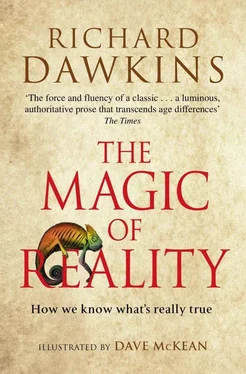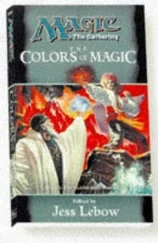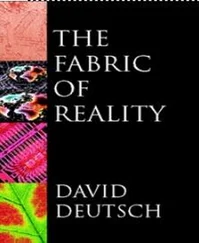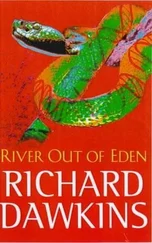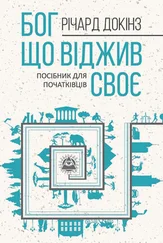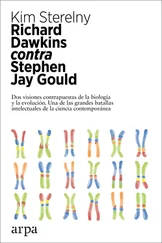The third meaning of magic is the one I mean in my title: poetic magic. We are moved to tears by a beautiful piece of music and we describe the performance as ‘magical’. We gaze up at the stars on a dark night with no moon and no city lights and, breathless with joy, we say the sight is ‘pure magic’. We might use the same word to describe a gorgeous sunset, or an alpine landscape, or a rainbow against a dark sky. In this sense, ‘magical’ simply means deeply moving, exhilarating: something that gives us goose bumps, something that makes us feel more fully alive. What I hope to show you in this book is that reality – the facts of the real world as understood through the methods of science – is magical in this third sense, the poetic sense, the good to be alive sense.
Now I want to return to the idea of the supernatural and explain why it can never offer us a true explanation of the things we see in the world and universe around us. Indeed, to claim a supernatural explanation of something is not to explain it at all and, even worse, to rule out any possibility of its ever being explained. Why do I say that? Because anything ‘supernatural’ must by definition be beyond the reach of a natural explanation. It must be beyond the reach of science and the well-established, tried and tested scientific method that has been responsible for the huge advances in knowledge we have enjoyed over the last 400 years or so. To say that something happened supernaturally is not just to say ‘We don’t understand it’ but to say ‘We will never understand it, so don’t even try.’
Science takes exactly the opposite approach. Science thrives on its inability – so far – to explain everything, and uses that as the spur to go on asking questions, creating possible models and testing them, so that we make our way, inch by inch, closer to the truth. If something were to happen that went against our current understanding of reality, scientists would see that as a challenge to our present model, requiring us to abandon or at least change it. It is through such adjustments and subsequent testing that we approach closer and closer to what is true.
What would you think of a detective who, baffled by a murder, was too lazy even to try to work at the problem and instead wrote the mystery off as ‘supernatural’? The whole history of science shows us that things once thought to be the result of the supernatural – caused by gods (both happy and angry), demons, witches, spirits, curses and spells – actually do have natural explanations: explanations that we can understand and test and have confidence in. There is absolutely no reason to believe that those things for which science does not yet have natural explanations will turn out to be of supernatural origin, any more than volcanoes or earthquakes or diseases turn out to be caused by angry deities, as people once believed they were.
Of course, no one really believes that it would be possible to turn a frog into a prince (or was it a prince into a frog? I can never remember) or a pumpkin into a coach, but have you ever stopped to consider why such things would be impossible? There are various ways of explaining it. My favourite way is this.
Frogs and coaches are complicated things, with lots of parts that need to be put together in a special way, in a special pattern that can’t just happen by accident (or by a wave of a wand). That’s what ‘complicated’ means. It is very difficult to make a complicated thing like a frog or a coach. To make a coach you need to bring all the parts together in just the right way. You need the skills of a carpenter and other craftsmen. Coaches don’t just happen by chance or by snapping your fingers and saying ‘Abracadabra’. A coach has structure, complexity, working parts: wheels and axles, windows and doors, springs and padded seats. It would be relatively easy to turn something complicated like a coach into something simple – like ash, for instance: the fairy godmother’s wand would just need a built-in blowtorch. It is easy to turn almost anything into ash. But no one could take a pile of ash – or a pumpkin – and turn it into a coach, because a coach is too complicated; and not just complicated, but complicated in a useful direction : in this case, useful for people to travel in.
Let’s make it a bit easier for the fairy godmother by supposing that, instead of calling for a pumpkin, she had called for all the parts you need for assembling a coach, all jumbled together in a box: a sort of Ikea kit for a coach. The kit for making a coach consists of hundreds of planks of wood, panes of glass, rods and bars of iron, wads of padding and sheets of leather, along with nails, screws and pots of glue to hold things together. Now suppose that, instead of reading the instructions and joining the parts in an orderly sequence, she just put all the bits into a great big bag and shook them up. What are the chances that the parts would happen to stick themselves together in just the right way to assemble a working coach? The answer is – effectively zero. And a part of the reason for that is the massive number of possible ways in which you could combine the shuffled bits and pieces which would not result in a working coach – or a working anything .
If you take a load of parts and shake them around at random, they may just occasionally fall into a pattern that is useful, or that we otherwise recognize as somehow special. But the number of ways in which that can happen is tiny: very tiny indeed compared with the number of ways in which they will fall into a pattern that we don’t recognize as anything more than a heap of junk. There are millions of ways of shuffling and reshuffling a heap of bits and pieces: millions of ways of transforming them into… another heap of bits and pieces. Every time you shuffle them, you get a unique heap of junk that has never been seen before – but only a tiny minority of those millions of possible heaps will do anything useful (such as taking you to the ball) or will be remarkable or memorable in any way.
Sometimes we can literally count the number of ways you can reshuffle a series of bits – as with a pack of cards, for instance, where the ‘bits’ are the individual cards.
Suppose the dealer shuffles the pack and deals them out to four players, so that they each have 13 cards. I pick up my hand and gasp in astonishment. I have a complete hand of 13 spades ! All the spades.
I am too startled to go on with the game, and I show my hand to the other three players, knowing they will be as amazed as I am.
But then, one by one, each of the other players lays his cards on the table, and the gasps of astonishment grow with each hand. Every one of them has a ‘perfect’ hand: one has 13 hearts, another has 13 diamonds, and the last one has 13 clubs.
Would this be supernatural magic? We might be tempted to think so. Mathematicians can calculate the chance of such a remarkable deal happening purely by chance. It turns out to be almost impossibly small: 1 in 53,644,737,765,488,792, 839,237,440,000. If you sat down and played cards for a trillion years, you might on one occasion get a perfect deal like that. But – and here’s the thing – this deal is no more unlikely than every other deal of cards that has ever happened! The chance of any particular deal of 52 cards is 1 in 53,644,737,765,488,792, 839,237,440,000 because that is the total number of all possible deals. It is just that we don’t notice any particular pattern in the vast majority of deals that are made, so they don’t strike us as anything out of the ordinary. We only notice the deals that happen to stand out in some way.
There are billions of things you could turn a prince into, if you were brutal enough to rearrange his bits into billions of combinations at random. But most of those combinations would look like a mess – like all those billions of meaningless, random hands of cards that have been dealt. Only a tiny minority of those possible combinations of randomly shuffled prince-bits would be recognizable or good for anything at all, let alone a frog.
Читать дальше
